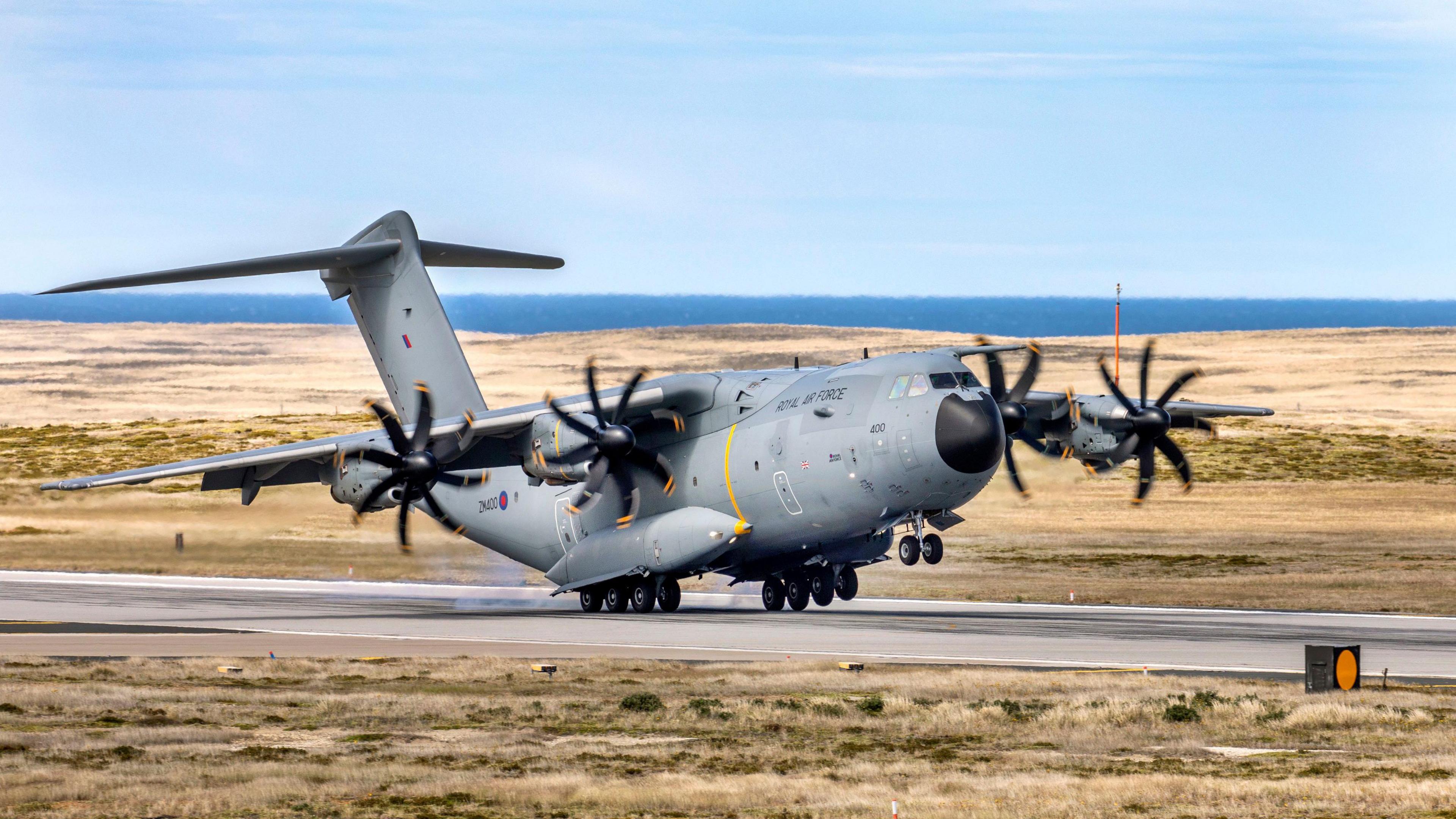Last trawler used in Falklands War to be scrapped
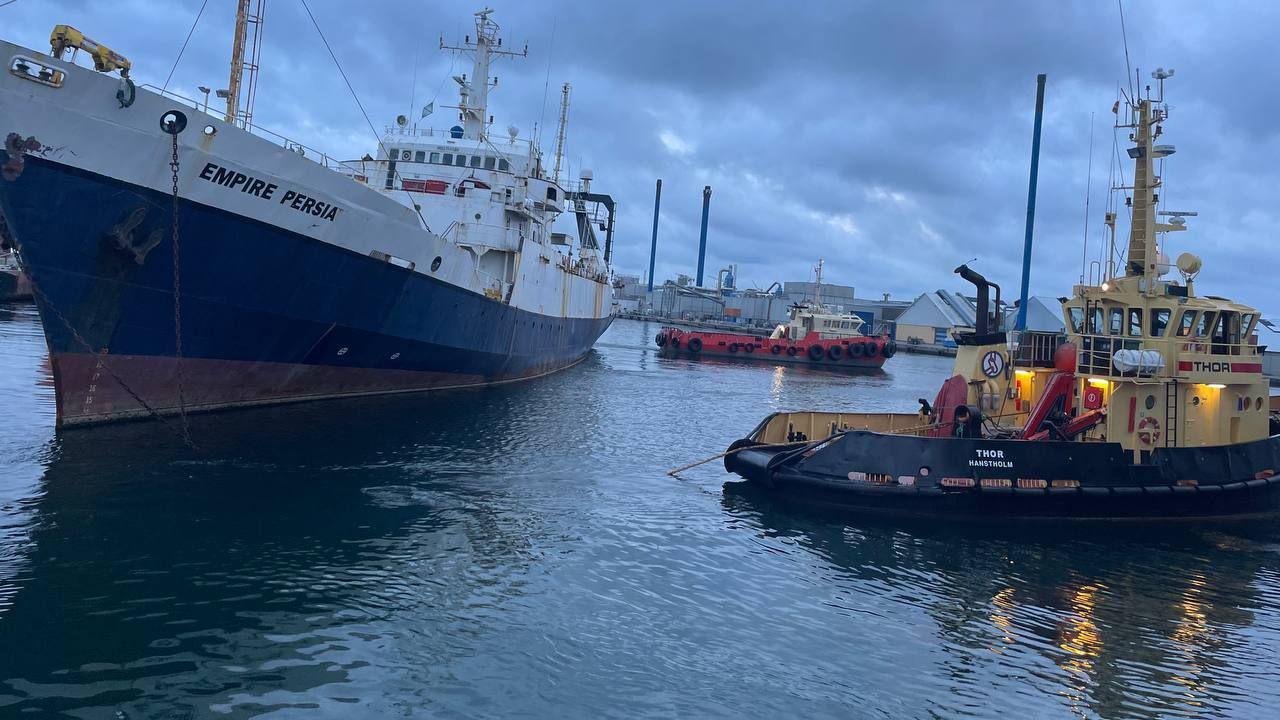
The Empire Persia has been towed to a ship recycling facility in Denmark, where it will be broken up
- Published
The last of the fishing trawlers requisitioned by the UK government to take part in the Falklands conflict is being scrapped.
The Farnella, now known as the Empire Persia, was built on Tyneside in 1972 and was one of nine civilian vessels from Hull to travel to the South Atlantic in 1982.
It then went on to become a treasure hunting ship on operations to find wrecks, some carrying gold and silver worth millions of pounds.
Robb Robinson, maritime historian at Hull University said: "The Farnella is one of a long line of trawlers to serve in wartime and has had an amazing history since, it really is unique."
The Farnella was built by Cleland Shipbuilders in Willington Quay, Wallsend, on the River Tyne in 1972 for J. Marr & Sons and worked out of Hull as a fishing trawler.
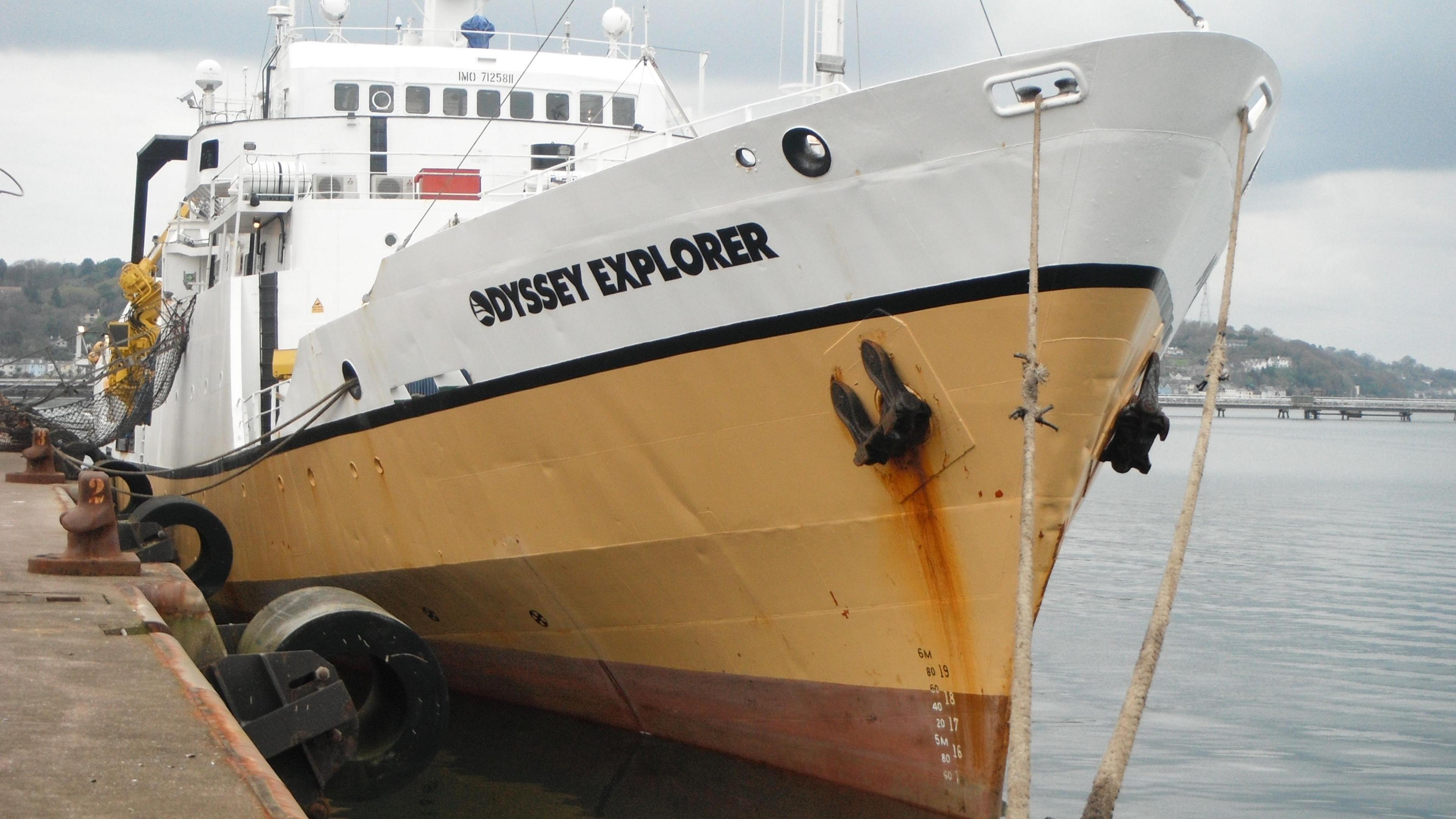
Farnella was later renamed the Odyssey Explorer, and took part in operations recovering bullion from old shipwrecks
After requisitioning in 1982, all the trawlers were refitted as minesweepers at Rosyth naval base and replaced with naval crews.
"Trawlers have been used since the First World War as minesweepers and these trawlers were used to operating in difficult sea conditions," Dr Robinson said.
"People think of ships in wartime as naval ships but civilian ships were often used too."
During the summer of 1982, the Farnella was used for night-time operations, which involved dropping off troops into West Falklands, and carried out minesweeping after the surrender of Argentine forces.
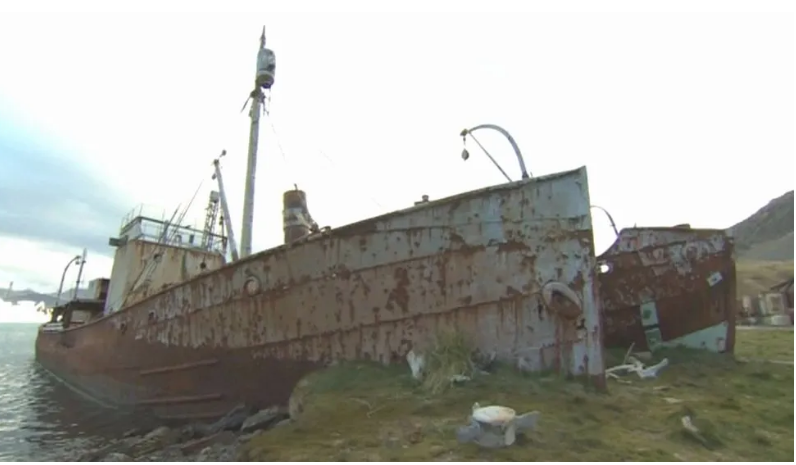
Many fishing trawlers have been used in wartime, including the Viola, which is beached in South Georgia and dates back to World War One
While down at South Georgia, the Farnella was at one point moored opposite the place where the former trawler Viola, one of the first vessels requisitioned in World War One, is now beached.
Later the Farnella was used to chart the newly created exclusive economic zones around the United States.
It then became a treasure hunting ship and was named the Odyssey Explorer, taking part in operations which included recovering bullion and other items from old shipwrecks.
One of those wrecks was the SS Mantola, which was sunk by the German submarine U-81 in the Atlantic, with a cargo of about 600,000 oz (17,010 kg) of silver.
'National maritime story'
Since 2016, the Farnella has been named the Empire Persia and used as an offshore support vessel, moored at Skagen in Demark.
Dr Robinson said he felt "great sadness" to discover it was being scrapped.
"It is part of our national maritime story, a long line of fishing trawlers which have served this nation so well, but sadly the breaker's yard is the fate of most ships at the end of their lives and this one is no different."
A statement from the Danish firm Smedegaarden confirmed it had purchased the vessel for recycling, the terminology used for scrapping.
"The job will be done and performed at our ship recycling facility in Esbjerg DK according to the present regulation and demands from both EU and Denmark," it added.
Follow BBC North East on X, external, Facebook, external, Nextdoor, external and Instagram, external. Send your story ideas to northeastandcumbria@bbc.co.uk.
Related topics
More stories from the BBC
- Published2 April 2022
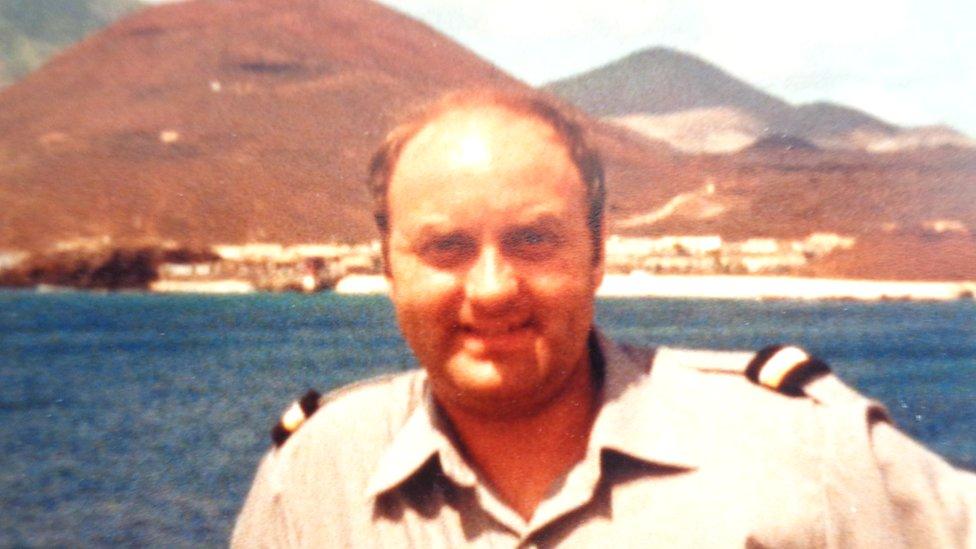
- Published29 November 2017
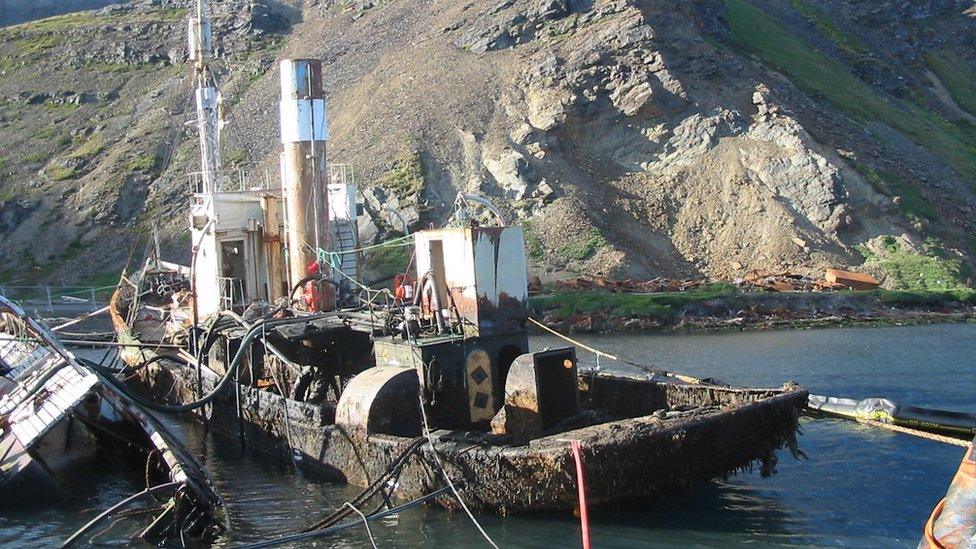
- Published24 July 2024
